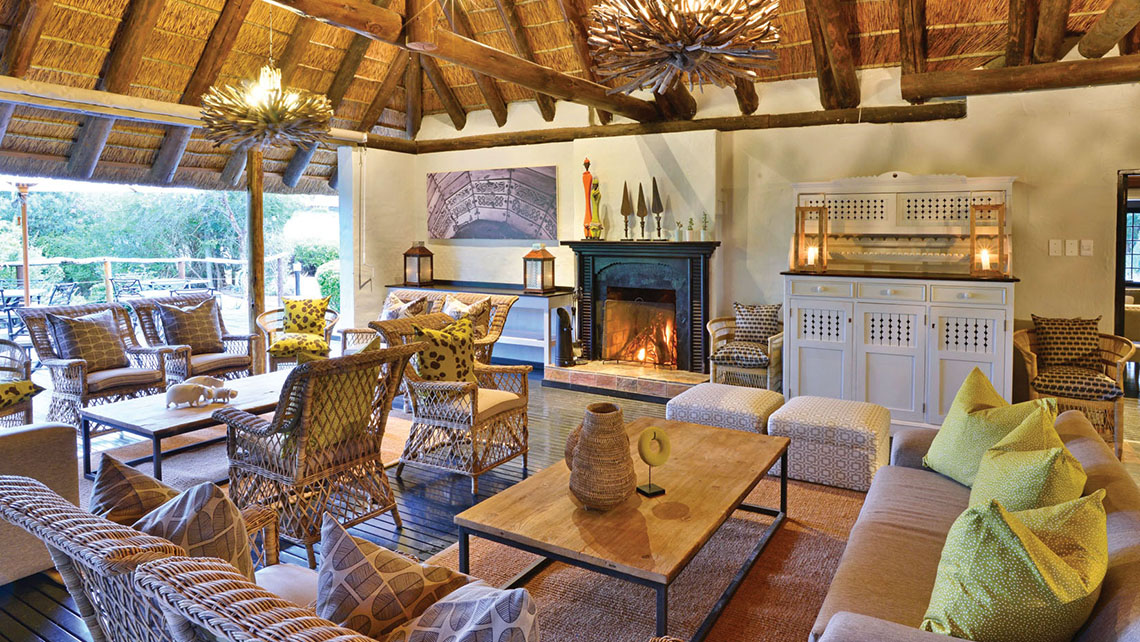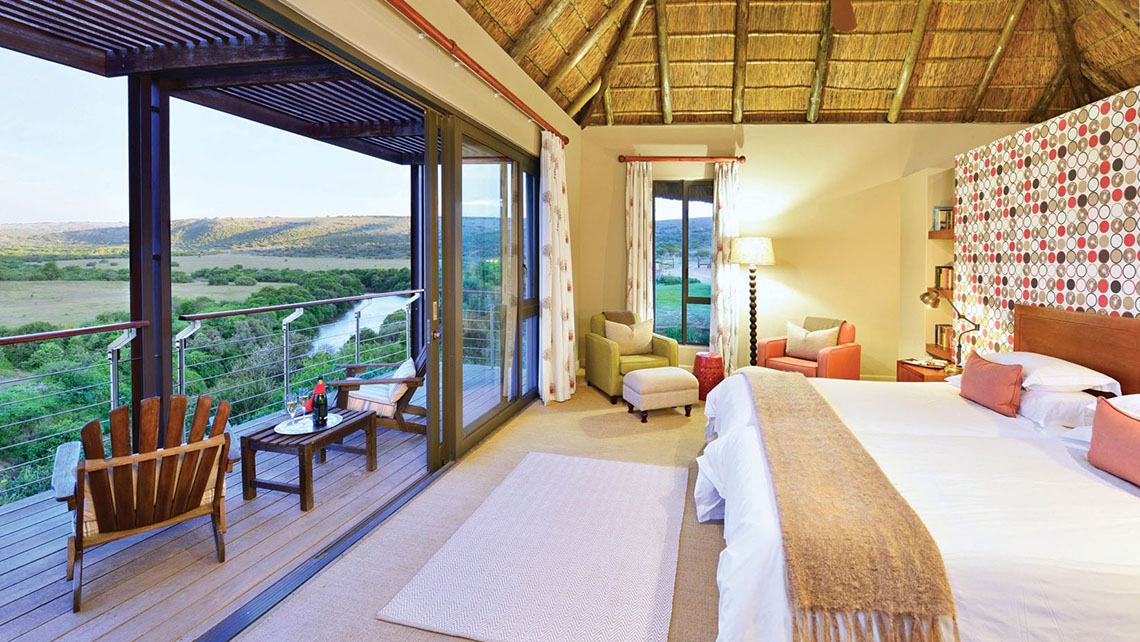For those seeking dramatic landscapes, uninhibited wildlife and luxury accommodations, the Shamwari Game Reserve in South Africa’s Eastern Cape is at the forefront of creating extraordinary safari experiences.
But beyond the Instagram-worthy Big Five that visitors are likely to encounter on a game drive — rhinoceroses, leopards, elephants, buffaloes and lions — the reserve is also a leader in conservation and rehabilitation. In October, the Shamwari Game Reserve will celebrate its 25th anniversary.
In 1990, founder Adrian Gardiner purchased a 2,965-acre farm. Shortly thereafter, due to drought and South Africa’s financial instability, neighboring farms became available. Today, the nearly 62,000 acres comprising Shamwari (now owned by Dubai World) have evolved into one of the country’s most reputable reserves.
From the onset, Gardiner was committed to preservation. He sought the expertise of Ian Player, founder of the Wilderness Foundation, to ensure that Shamwari’s evolution as a tourist destination and wildlife habitat would be harmonious.
A team of wildlife specialists (now led by Johan Joubert) and ecologists maintains the delicate ecosystem, while antipoaching units ensure that the wildlife can roam free. Guests can visit the Wildlife Rehabilitation Centre as part of their itinerary, which offers intimate access to some of the reserve’s most fragile residents, including last spring’s arrival of Noelle and Binky, two rhino calves who were gently nursed back to health before being released into the reserve.
In addition, Shamwari also maintains two Big Cat Rescue and Education Centres, opened in collaboration with the Born Free Foundation. While the Rehabilitation Centre’s goal is to eventually return animals back to their natural habitat, the rescue centers are more like posh retirement homes for the majestic lions and leopards that often arrive after years of captivity.
The big-cat habitats are enclosed, open-air sanctuaries, featuring guides who offer background details on each of the animals. Both centers offer a welcoming introduction to the safari experience, especially for families traveling with children who might need coaxing. (Children under 4 years old are not permitted on game drives.)

Game (drive) on
One of the highlights of any reserve is the game drive. Shamwari’s rangers and drivers know the lay of the land, ensuring that guests maximize their time in the bush. For those concerned about vaccinations, the Eastern Cape is malaria-free.
Game drives typically begin at dawn, and participants can expect to see the sun rising behind darting antelopes and majestic giraffes. The open-air, all-terrain vehicles are equipped to go off trail, which is often the case to catch a glimpse of the elusive lions and leopards.
After the morning drive, guests can enjoy a hearty breakfast and have the rest of the afternoon to relax at one of the property’s six deluxe lodges. In the summer months (October to April in South Africa), the Explorer Camp offers a two-night option for those seeking a true wilderness bush-camp experience, where luxe tents provide the backdrop for adventure.
Afternoon game drives deliver an entirely different perspective as the sun washes over the rolling hills and meandering rhinos and elephants make their way across the plains. A mid-drive break gives guests the opportunity to photograph the majestic sunset and enjoy a drink, such as amarula, a liqueur made from the indigenous marula tree.
Special-interest tours are also available, including a Pro Photo Safari package guided by the father-son team of Iky and Ryan Plakonouris. This specialty tour includes a specially rigged vehicle for photography equipment; camera body and telephoto lens rental; and editing software packages.

Luxurious lodging
When it’s time to dust off from the day’s adventures, Shamwari’s various accommodations are outfitted for luxury while still paying homage to the natural surroundings. Each lodge can be booked in its entirety for a private gathering of family or friends.
Highlights include the Sarili Lodge, which offers contemporary furnishings and stellar views of the Bushmans River. Its five luxury rooms feature underfloor heating and soaking tubs, while the shared lounge area offers plenty of seating to curl up around the wood-burning fireplace.
The Lobengula Lodge is the most recently renovated lodge, drawing inspiration from a traditional African kraal (village). “We wanted to create a tranquil environment, by means of the decor, which reflected the earthy tones of the African bush,” said Shamwari general manager Joe Cloete. “It was also important for us to use local artisans throughout the new design.”
Conservation extends beyond the wildlife at Shamwari, where water-saving methods are implemented within the lodges along with solar-power enhancement and ecofriendly cleaning products. The reserve is also a member of Fair Trade Tourism.
“Shamwari, meaning ‘my friend’ in Shona, is the pinnacle of private game reserves,” Cloete said. “It is a place where guests can exist in harmony with nature, however fleeing the moment, where free-roaming wildlife traipse the landscape under the relentless African sun. It is always our aim to not only provide five-star accommodations and incredible game viewing but to also educate all guests, young and old, on the importance of wildlife conservation and to conserve a vanishing way of life.”
See www.shamwari.com.
Source: Safari in harmony at Shamwari Game Reserve: Travel Weekly























